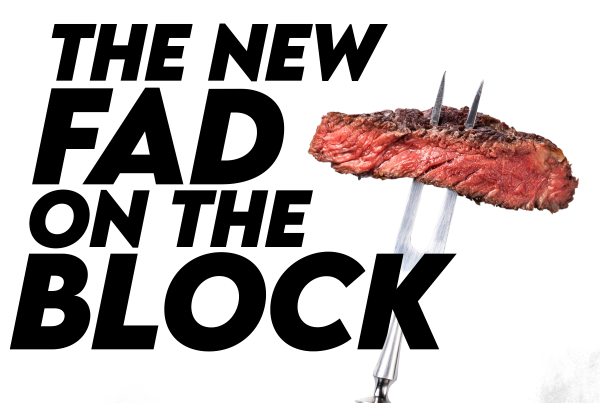Ever wanted to know how to eat like a Dietitian, or just generally what they will keep in their fridge and cupboards? I know, we can easily recommend foods to people, on the stance that they’re healthy/good for us/we just should eat them. Today’s post will look at the top foods to keep stocked, why we want them in our homes and what they can do for our health. A triple threat post, basically!
How to Eat Like a Dietitian: FRIDGE
Yoghurt
I feel like this is always the first thing Dietitians recommend or say they keep in their fridge. But, for good reason! First up, its packed full of protein. One serve of yoghurt (which is 200g) contains up to 10g of protein! The plain Greek yoghurt is the best choice, as it has limited added sugars from flavours or fruits. Secondly, it’s versatile. Topping it with fresh fruit and coconut is my favourite snack or breakfast option.
Fruit and Vegetables
I think it would just be shocking if I didn’t mention that fruit and veg should be well stocked. I won’t waffle on for too long, but having fruit and veg, even pre-cut if you’re feeling motivated, is always a good idea. All the different fruits and veg provide us with all different vitamins and nutrients for the body. Sounds good to me! I don’t think a lot more needs to be said, but fresh or frozen; cooked or raw, we should all include the 2 & 5 in our daily diet.
Eggs
Eggs are a great staple to keep stocked. Despite what has been said in the past about eggs, they’re an excellent food to keep on hand as they are high in protein and healthy fats. The cholesterol content of eggs has almost no effect on our blood cholesterol levels (they’re more affected by saturated and trans fats that we eat!).
Eggs are such a versatile food – eaten boiled as a snack, poached for breakfast or turned into an omelette with spinach, mushrooms and tomatoes for lunch.
How to Eat Like a Dietitian: FREEZER
Frozen Vegetables and Fruits
I’ve said it before and I’ll say it again. Frozen vegetables are perfectly fine to have on hand when you’re in a time crunch. Veges provide us with important vitamins and minerals, and can be used in a multitude of ways. Stir-fry’s, vege bowls, omelettes, smoothies (spinach or kale work a treat!)… I could go on for ages!
Having frozen fruit are a staple to keep in your kitchen. It’s the same with veges – they provide us with vitamins, minerals and nutrients. Eat frozen fruit as a snack, thrown onto porridge or blended into a smoothie. Keeping frozen fruits and veg on hand will help you easily reach your two and five each day!
Pre-Portioned Lean Meat and Fish
Having pre-portioned frozen meat will help make your life a little easier. Take it out in the morning, and it will be defrosted and ready to cook in the evening. Buying meat when its on special and throwing it in the freezing is a great way to save money (helps to avoid having to spend money on meat or fish weekly!).
Lean meats and fish provide us with iron, zinc and vitamin B12 – but remember to follow the serving sizes. Consuming 65g of lean meat, 80g of poultry or 100g cooked fish is considered to be one serve. Fish and seafood also contain healthy omega-3 fats, and regular consumption of fish has been linked to reducing heart disease risk!
Leftovers
Pre-portion your leftover dinner into containers and chuck in the freezer – perfect for lunch or dinner when you’ve totally forgotten to meal prep one week. Easy as!
How to Eat Like a Dietitian: PANTRY/CUPBOARD
Nuts, Seeds and Nut Butters
Go nuts! Nuts and seeds are great for our health, for many reasons. Not only are there multiple types, but they each provide a different vitamin, whether it be zinc, magnesium, vitamin E or selenium. As well as that, they provide us with the healthy fats. Nuts are high in protein, meaning they’re a snack that will help keep us feeling full between meals. Having a handful of nuts or peanut butter on a piece of wholegrain toast, is an excellent snack. Go for the unsalted variety of nuts and nut butters, to avoid excessive sodium in your diet.
Moving onto seeds… chia and flax are the main two seeds I like to keep on hand. Chia seeds are nutrient dense and high in antioxidants, protein, fibre and calcium (phew!). Sprinkle them on your cereal, porridge or smoothie and you won’t even notice they’re there. Flaxseeds are high in fibre, making them beneficial for heart health – they can help lower cholesterol and blood pressure! Flaxseeds can be used in a similar way to chia – sprinkled on top or even ground to make a meal which can then be used in baking.
Canned Goods
Tinned tomatoes are great to have on hand as a quick pasta sauce for some wholemeal pasta or zucchini noodles. Lentils, beans and chickpeas in canned form are great to bulk up soups or salads, and give you a serve of protein and fibre at the same time. Roast some chickpeas in olive oil and spices for a quick snack – instead of a packet of potato chips! Opt for the low salt or no-added salt option and drain before using.
Canned fish, such as tuna or salmon, are an excellent, quick source of protein to add to your salad or simply as a snack. There are a lot of varieties in the stores, in different flavoured oils or spices, which add kilojoules and fat to the fish. Choose tuna or salmon in spring water, and add herbs or spices to give it flavour.
Tinned fruits such as peaches or apple are excellent served on yoghurt as a snack; try to go for the ‘in fruit juice’ rather than ‘in syrup’.
Wholegrains
By wholegrains, I mean a whole range of things. Quinoa, oats, brown rice, pasta, the list goes on. Consuming grain foods daily has been linked to potentially reducing the risk of heart disease, type 2 diabetes and excessive weight gain. Wholegrains are rich in fibre and protein, contain vitamins and minerals (in the bran) and healthy fats (in their germ). Triple threat! Women and men aged above 50 are recommended to have around six serves of wholegrains per day, which can be easily achieved. Porridge for breakfast, a salad sandwich for lunch and quinoa salad for dinner – not only would this provide around five serves, it also includes a variety of wholegrain sources. No one wants bread for every meal!
A well-stocked kitchen helps us be prepared, ready to cook healthy meals and avoid the tempting takeaway option after a long working day!
To find out more on how to eat like a dietitian, or for a tailored meal plan of your own – call us now!







